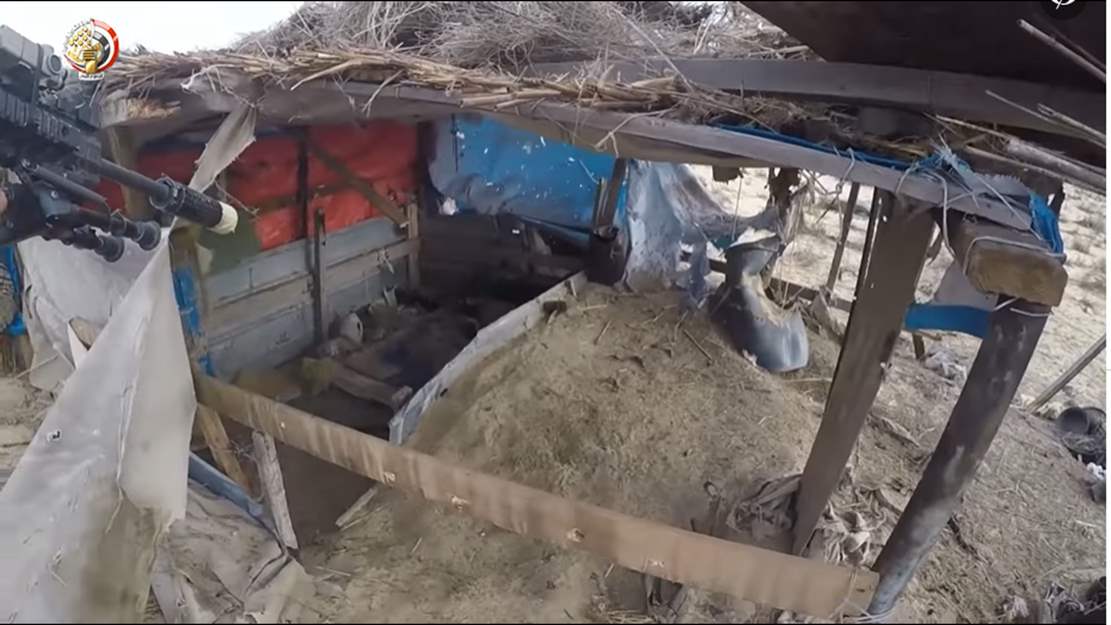Egypt Uncovers Mass Grave Linked to Extrajudicial Killings
Egyptian and international human rights organizations have uncovered a mass grave in North Sinai, presenting evidence that implicates Egyptian military forces in systematic extrajudicial killings and enforced disappearances during counterterrorism operations over the past decade.

Mass Grave Discovery and Forensic Evidence
A coalition of Egyptian civil society groups, led by the Sinai Foundation for Human Rights and supported by international research agency Forensic Architecture, has revealed the existence of a mass grave near El-Arish in North Sinai. According to the organizations’ published findings, the grave contains the remains of at least 36 individuals, with estimates suggesting the total number of bodies may exceed 300. Field researchers documented that many of the bodies were buried in civilian clothing and shoes, and some skulls were found with blindfolds, indicating possible extrajudicial executions. The investigation combined on-site inspections, high-resolution photography, shallow excavations, and satellite imagery analysis to map the grave and trace military activity in the area. Testimonies from former members of army-aligned militias, who admitted to transporting detainees to the site, further corroborated the evidence of systematic killings.
Pattern of Abuses and Official Denials
The mass grave discovery is the latest in a series of documented abuses by Egyptian security forces in North Sinai since the launch of counterterrorism operations in 2013. Human rights groups, including Human Rights Watch and Amnesty International, have previously reported dozens of extrajudicial killings, enforced disappearances, and torture of detainees, including children. Egyptian authorities have consistently claimed that those killed were armed militants who died in shootouts, but independent investigations have repeatedly disproven these assertions. Notably, a 2017 incident in Al-Arish, where the Interior Ministry released a video of a supposed raid, was later exposed as a staged event involving previously detained individuals. Leaked footage from the same year showed soldiers executing unarmed detainees and arranging their bodies to simulate combat fatalities.
Calls for Accountability and International Response
The revelations come as Egypt seeks election to the United Nations Human Rights Council. In response, Egyptian and international human rights organizations have called for the immediate establishment of a UN-led investigation into the alleged war crimes and for member states to oppose Egypt’s Council candidacy. Ahmed Salem, executive director of the Sinai Foundation for Human Rights, emphasized that the evidence points to crimes against humanity and that justice for the victims remains elusive. The Cairo Institute for Human Rights Studies described the findings as disqualifying for Egypt’s bid to join the Human Rights Council. The organizations’ letter to the UN High Commissioner for Human Rights and member states urges the creation of an independent committee to investigate the full scope of violations in Sinai.
Broader Impact on Sinai’s Population
The ongoing military campaign in North Sinai has led to the displacement of more than 150,000 Bedouins, with thousands reportedly kidnapped, tortured, or summarily executed. Researchers estimate that between 2013 and 2022, Egyptian forces killed over 5,000 people accused of terrorism, while the number of actual militants in the region was likely far lower. The mass grave and related evidence highlight the enduring trauma for families of the disappeared, many of whom have waited years for information about their loved ones. Human rights advocates stress that only truth and accountability can address the suffering of Sinai’s population and restore the rule of law in the region.
Sources
-
Cairo Institute for Human...
Mass Grave Uncovered in Egypt Implicates Egyptian...
-
Threads
In a letter sent to UN member states and the UN Hi...
-
Radiance News
A Mass Grave Uncovered in Sinai Indicates Extrajud...
-
Democracy Now!
Prominent Egyptian Blogger and Activist Alaa Abd E...
-
democracynow.org
Sep 23, 2025 - Democracy Now!
-
ABC News
Trump to take aim at 'globalist institutions,' mak...
-
hrw.org
Human Rights Watch | Defending Human Rights Worldw...